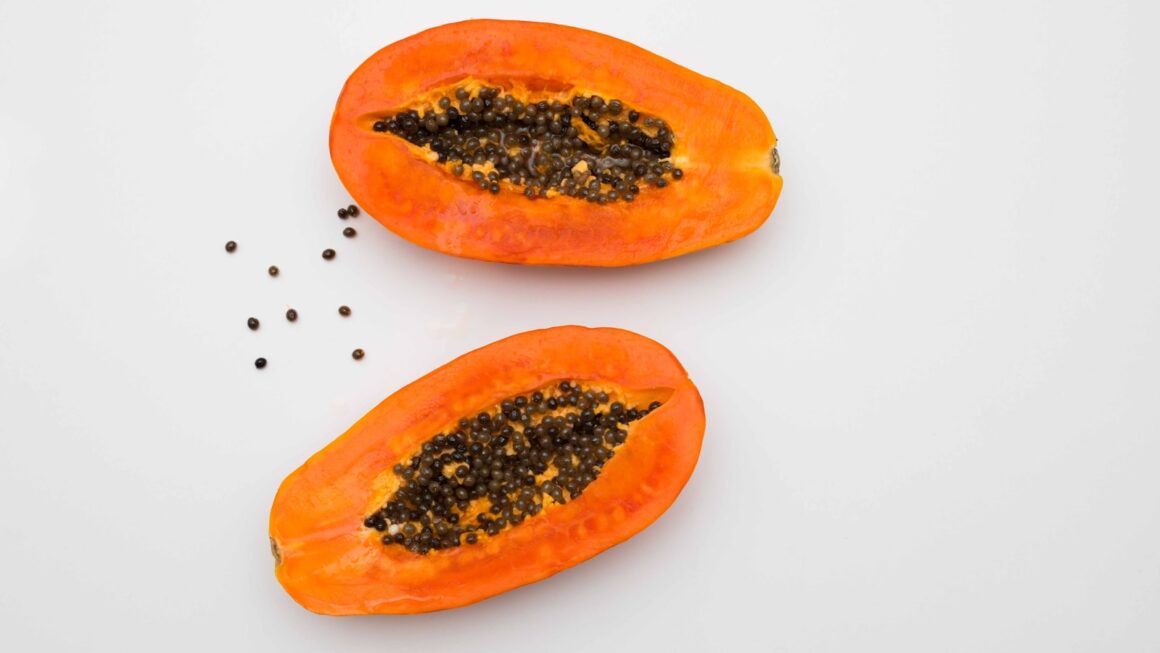Carotenoids are a group of pigments found in plants, algae, and some bacteria that give fruits and vegetables their vibrant red, orange, and yellow colors.
Over 600 different carotenoids have been identified in nature, with beta-carotene, lycopene, and lutein being some of the most well-known and studied ones. These compounds play a crucial role in human health by acting as antioxidants, which help protect the body’s cells from damage caused by free radicals.
In addition to their antioxidant properties, carotenoids have been linked to a range of health benefits, including supporting eye health, boosting the immune system, and reducing the risk of certain chronic diseases. Research has shown that a diet rich in carotenoid-containing foods can help lower the risk of developing conditions such as cardiovascular disease, macular degeneration, and certain types of cancer. Incorporating a variety of carotenoids into your daily diet through the consumption of a colorful array of fruits and vegetables is a simple yet effective way to reap the health benefits that these compounds offer.
Sources of Carotenoids in the diet
Carotenoids are plant pigments that are responsible for the vibrant red, orange, and yellow colors found in fruits and vegetables. They are essential nutrients that the human body cannot produce on its own, making it necessary to obtain them from dietary sources. A wide variety of fruits and vegetables are rich sources of carotenoids, including carrots, sweet potatoes, spinach, tomatoes, bell peppers, and butternut squash.
In addition to fruits and vegetables, other sources of carotenoids in the diet include certain animal products such as egg yolks and shrimp. Consuming a diverse range of colorful fruits and vegetables ensures a good intake of different types of carotenoids, each offering unique health benefits. Diversity in the diet can help maximize the synergistic effects of various carotenoids, providing a broad spectrum of antioxidant and anti-inflammatory properties that support overall health and well-being.
Benefits of consuming a variety of carotenoids
Carotenoids are a diverse group of plant pigments that play a crucial role in human health. Consuming a variety of carotenoids can offer a range of benefits, as each type has unique properties that support different aspects of well-being. By incorporating an array of carotenoid-rich foods into your diet, you can ensure that your body receives a spectrum of nutrients that work synergistically to promote optimal health.
Studies have shown that consuming a variety of carotenoids can help protect against chronic diseases such as heart disease, certain types of cancer, and age-related macular degeneration. Each carotenoid offers distinct health benefits, with some known for their antioxidant properties while others support immune function or promote skin health. By including a rainbow of colorful fruits and vegetables in your meals, you can harness the power of carotenoids to enhance your overall health and well-being.
The importance of beta-carotene in the body
Beta-carotene, a type of carotenoid, is a powerful precursor to vitamin A in the body. It plays a crucial role in maintaining healthy vision, as it is converted into retinol, which is essential for proper eye function. Additionally, beta-carotene acts as an antioxidant, protecting cells from damage caused by harmful free radicals. This function is particularly important in supporting the immune system and reducing the risk of chronic diseases.
Moreover, beta-carotene is known for its potential anti-inflammatory properties, which can help in reducing inflammation throughout the body. This is significant for overall health and well-being, as chronic inflammation is linked to various conditions such as heart disease, arthritis, and cancer. By incorporating foods rich in beta-carotene into your diet, you can support your body’s natural defense mechanisms and promote optimal health.
The role of lycopene in promoting heart health
Lycopene, a type of carotenoid found in red fruits like tomatoes and watermelon, has been associated with promoting heart health. Research suggests that lycopene may help reduce the risk of cardiovascular diseases by potentially lowering blood pressure and improving cholesterol levels. Additionally, lycopene is believed to possess antioxidant properties that can help combat inflammation and oxidative stress in the body, both of which are factors linked to heart disease.
Studies have indicated that diets rich in lycopene-containing foods may contribute to a lower incidence of heart-related complications. By including sources of lycopene in your daily meals, such as cooked tomato products or pink grapefruit, you could potentially support your cardiovascular system. While more research is needed to fully understand the mechanisms by which lycopene influences heart health, incorporating lycopene-rich foods into a balanced diet may be a proactive step towards maintaining a healthy heart.

How carotenoids act as antioxidants in the body
Carotenoids, such as beta-carotene and lycopene, play a crucial role in the body as antioxidants. These compounds are able to neutralize harmful free radicals that can cause oxidative damage to cells. By scavenging these free radicals, carotenoids help to protect the body from various chronic diseases and slow down the aging process.
Furthermore, carotenoids are believed to work synergistically with other antioxidants, like vitamins C and E, to provide a more comprehensive defense against oxidative stress. This interplay between different antioxidants enhances their overall effectiveness in combating cellular damage and reducing the risk of developing conditions such as heart disease, cancer, and degenerative diseases.
The potential anti-cancer properties of carotenoids
Carotenoids, including beta-carotene, lycopene, and lutein, have garnered attention for their potential anti-cancer properties. Research suggests that these compounds may help protect against certain types of cancer due to their antioxidant properties and ability to neutralize free radicals that can contribute to cancer development.
In particular, beta-carotene has shown promising results in studies related to lung, prostate, and breast cancers. Lycopene, found in tomatoes and other red fruits, has been linked to a reduced risk of prostate cancer. Lutein, commonly found in leafy greens, has also shown potential in protecting against skin, breast, and lung cancers. By incorporating a variety of carotenoid-rich foods into your diet, you may be able to harness these potential anti-cancer benefits.
How cooking affects the absorption of carotenoids
Carotenoids, the pigments responsible for the vibrant colors in fruits and vegetables, play a significant role in human health. How these beneficial compounds are prepared and cooked can impact their absorption in the body. Heat exposure during cooking can break down the cell walls of plants containing carotenoids, making them more accessible for absorption. However, prolonged cooking or high temperatures can lead to a loss of these valuable nutrients, diminishing their health benefits.
Furthermore, certain cooking methods can enhance the bioavailability of carotenoids. For instance, pairing foods rich in carotenoids with healthy fats like olive oil or avocado can improve their absorption as carotenoids are fat-soluble compounds. Steaming, sautéing, or microwaving vegetables containing carotenoids are recommended cooking techniques that help retain the nutrient content compared to boiling, which may lead to leaching of these compounds into the cooking water.
The connection between carotenoids and eye health
Carotenoids play a crucial role in supporting eye health due to their antioxidant properties and ability to protect against oxidative stress. The macula, a part of the retina responsible for sharp, central vision, contains a high concentration of carotenoids, particularly lutein and zeaxanthin. These carotenoids act as a natural filter, absorbing harmful blue light that can damage the eye and contribute to the development of age-related macular degeneration (AMD) and cataracts.
Research has shown that a diet rich in carotenoids, specifically lutein and zeaxanthin found in leafy green vegetables and colorful fruits, can help reduce the risk of developing AMD and cataracts. These carotenoids accumulate in the retina, where they contribute to maintaining healthy vision by filtering out damaging light wavelengths and reducing inflammation. Incorporating a variety of carotenoid-rich foods into your daily diet can have long-term benefits for your eye health and overall well-being.
Tips for incorporating a wide range of carotenoids into your daily diet
To ensure you are consuming a diverse array of carotenoids in your daily diet, aim to incorporate a colorful variety of fruits and vegetables into your meals. For example, consider adding orange sweet potatoes, red bell peppers, green spinach, yellow corn, and purple carrots to your plate. By including an assortment of colorful produce, you can take advantage of the different types of carotenoids present in each vibrant hue.
Another strategy to increase your carotenoid intake is to experiment with different cooking methods. While raw fruits and vegetables are a great source of carotenoids, some cooking methods can actually enhance the absorption of these beneficial compounds. Try steaming, roasting, or sautéing your vegetables with a drizzle of olive oil to help unlock the nutrient content and make it more available for absorption in the body.



